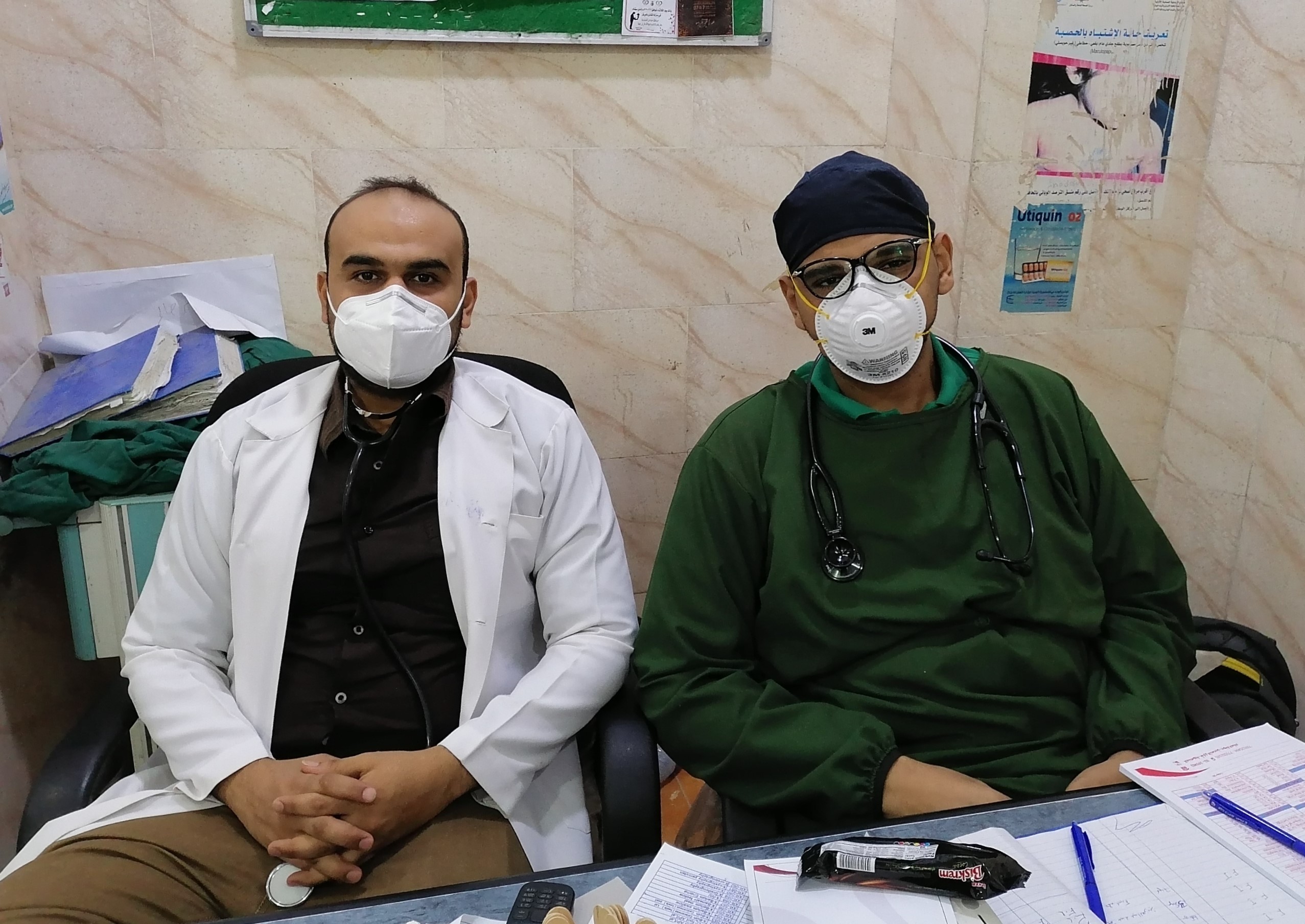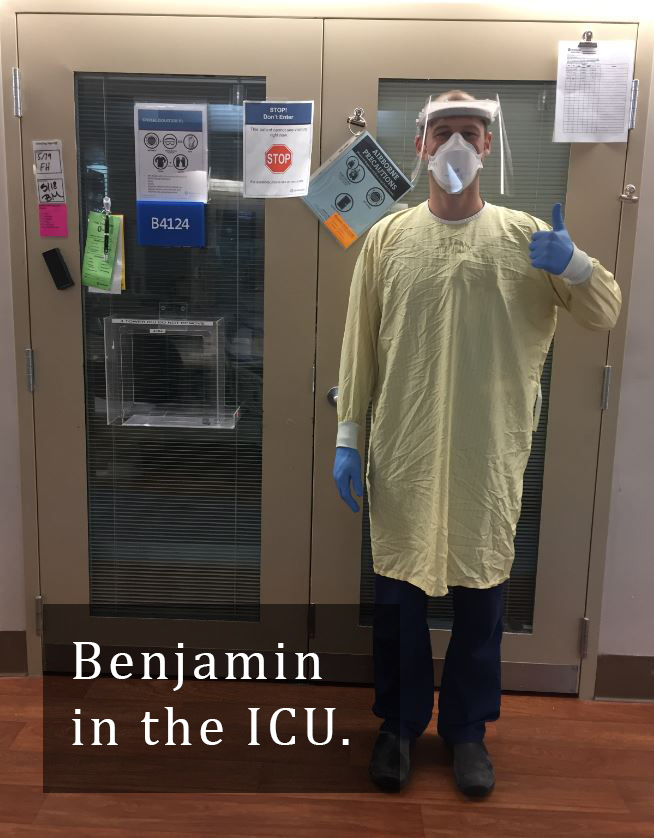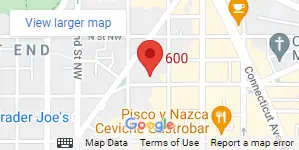
YES alumnus Omer (right) and a colleague during ER duty at his hospital in Aden.
As the COVID-19 crisis became a global pandemic, a former teacher and an alumnus of Amideast/Yemen have swung into action on the medical frontlines. Benjamin Cooper, who taught with Amideast/Yemen in 2013-14 before returning to the United States to pursue a career in nursing, has been working in an ICU dedicated to COVID patients. Recently, combining his teaching skills with firsthand experience on the frontlines, he was a guest speaker in Amideast/Yemen’s first fully online course.
 The students appreciated this experience; as one commented, “I got to speak with a native speaker and on a topic that he knows a lot about. We could ask many questions. He gave me a great motivation.” Benjamin likewise enjoyed the opportunity to reconnect with students in Yemen, observing, “Zoom calls have become common for all of us, but few Zoom calls have brought me as much joy as the one with students in Yemen. Their language skills impressed me, and they were respectful and had many good questions about the virus.”
The students appreciated this experience; as one commented, “I got to speak with a native speaker and on a topic that he knows a lot about. We could ask many questions. He gave me a great motivation.” Benjamin likewise enjoyed the opportunity to reconnect with students in Yemen, observing, “Zoom calls have become common for all of us, but few Zoom calls have brought me as much joy as the one with students in Yemen. Their language skills impressed me, and they were respectful and had many good questions about the virus.”
Although the disease was slow to come to Yemen, by April it was spreading widely. In the city of Aden, this was complicated by mosquito-borne diseases — malaria, dengue, and chikungunya — spreading in the wake of devastating floods. 2012 YES program alumnus Omer Al-Materi, who is in his final year of medical school at Aden University, volunteered to help at the overwhelmed emergency department at Al-Amal Hospital.
Both Omer and Benjamin have faced challenges while supporting the fight against COVID-19. For Omer, working in one of the world’s least-developed and now most war-afflicted countries, needs were overwhelming. A lack of equipment, an insufficient bed count, an absence of PPE use, and a dearth of ventilators are severely hampering the medical response there, and endangering staff and patients alike. He also faced initial objections from his family, who were worried about his safety, but who have come to accept the importance of what he is doing.
Meanwhile, although Benjamin’s ICU has not been overwhelmed in terms of capacity, he notes that working with critically ill patients, many of whom do not survive, has been a challenge for him and his colleagues. He says, "We are thankful to have plenty of PPE, and glad that no healthcare workers on our unit have gotten sick. However, we feel powerless to help people fight a disease for which there is currently no good treatment. Our standard supportive care, and even our high-tech ventilators and ready supply of the latest medical devices and procedures, are of limited use against this new virus. Prevention remains the best cure.”
Both found their time living abroad — Benjamin in Yemen and Omer in the United States — to have been formative, life-changing experiences that have helped them deal with the COVID-19 challenges they are facing. Benjamin says, “Although I was in Yemen as a teacher, I learned a great deal about resilience from my Yemeni colleagues and students. In the United States, we are not used to facing national emergencies on this scale. It has been difficult for us to adapt to the hardship caused by COVID-19. I admire Yemenis for the way they are able to stay hopeful through difficult situations.”
Omer also reminds us of the value of cross-cultural exchange: “My participation in the YES program in the United States taught me the meaning of volunteering, and since then I have dedicated a lot of my time to volunteering, both in my chosen specialty (medicine) and in more general charity work.”
Thank you to both of you for helping make a difference at this critical time!

